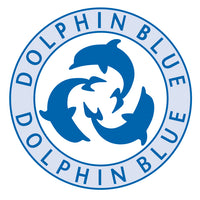If you've been following our series on post-consumer recycled products, then you have a pretty good idea about what PCR is and why it matters so much to me. What you may still be wondering is, "How do I make sure I find and buy PCR products? " And unfortunately, that question is more complex than it seems.
There is no all-encompassing database of PCR products - it just takes good, old-fashioned research to find what you're looking for.
The Wording on Packages

Reading product packaging carefully is important. If a product says it's made from recycled content, look for details. Does it specify whether that's pre-consumer recycled or post-consumer recycled? (Any kind of recycled is better than nothing, but post-consumer recycling means that when someone dropped an item in the blue bin for recycling, it was actually used to make this new item you're now contemplating purchasing. Pre-consumer recycling involves taking things like leftover scraps that weren't initially used and finding a purpose for them.)
Do the claims apply to just the packaging, just the product, or both? How high is the percentage of recycled content, and of that, what's the ratio of post-consumer recycled content? A product can claim to be made of "recycled content " even if only a tiny percentage contains anything recycled, but the FTC requires that the label tell you exactly how much is recycled (unless the product or package contains 100 percent recycled materials - in which case, that's probably a pretty good item to consider purchasing!).
The Products Where PCR Thrives
It can be discouraging to find a product that touts its recycled content, only to find that it's really not so PCR-laden at all. And it can take a while to find an item that fits the bill in all the areas that matter, like functionality, design, and sustainability. There is some good news, though: Lots of different kinds of retailers offer post-consumer recycled goods, from hardware stores and automotive centers to furniture shops and clothing boutiques.

One category I'm proud to say often leads the field in PCR is office supplies (it is what I built my business on, after all). Recycled paper has come a long way; you'd be hard-pressed to tell the difference between a high-quality, recycled-content version and its virgin-tree counterpart.
Consider Boise Aspen 100: perfectly new, safe, nontoxic, environmentally responsible, 100 percent post-consumer recycled copy and printer paper. In addition to the recycled element, the paper is whitened without the use of chlorinated compounds or chlorine bleach, eliminating some rather caustic and harmful chemical processes. Those kind of additional environmental and human health benefits that aren't always obvious are often an added bonus when you make a PCR purchase.
Certifications Worth Seeking
When looking to buy products, it can be helpful to see if they've been certified by a third party in environmental responsibility. Not all of these necessarily concern PCR, but they can be a good place to start:
Green Seal: Green Seal, a certification that's been around since 1989, considers the total environmental impact of a product and works to reduce that impact while maintaining the same performance and quality you would expect.
Totally Chlorine Free (TCF) or Processed Chlorine Free (PCF): The Chlorine Free Products Association is an independent, not-for-profit accreditation and standard-setting organization for evaluating chlorine-free products. Only papers made with 100 percent post-consumer recycled fiber can be PCF.
Forest Stewardship Council (FSC): FSC certification ensures that products come from well-managed forests that provide environmental, social, and economic benefits.
Green-e: An independent certification and verification program for renewable energy and greenhouse gas emission reductions.
CarbonNeutral: For this certification, a company, brand, or product must accurately measure its carbon footprint, then commit to a reduction strategy and carbon offset program to prove their activities will not result in an increase in greenhouse gas emissions that affect climate change.
Doing Our Part
We know it isn't always easy to find PCR products, and that's why we do the work for you - asking companies tough questions, verifying certifications, and making sure that everything we offer on DolphinBlue.com is environmentally responsible. On each product, we'll tell you the percentage of PCR content and clearly explain what that means.
We don't know any other companies that go to the lengths we do to both verify facts and educate consumers on this issue, but we know it's worth it. Every time you buy something containing PCR materials, you're helping to close the loop - reducing our reliance on virgin resources and bolstering the market for recyclables so that more products in the future can make use of PCR content.
We all win when we recycle, and we win more completely when we purchase PCR products, preserving our planet for future generations.
Tom Kemper is the founder of Dolphin Blue, a company founded in 1993 on the belief that we can all be responsible in what we use. Dolphin Blue sells the most environmentally responsible home, family, pet, office, and business products available.
